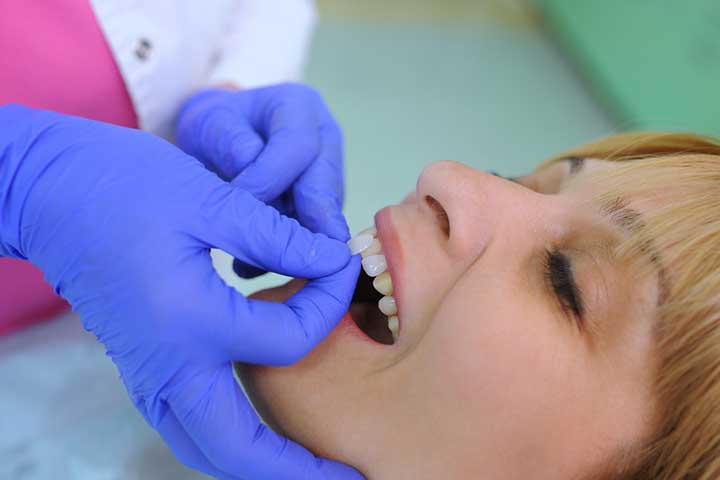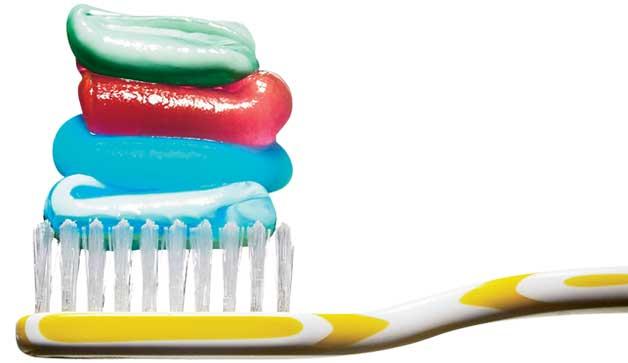Medications are a vital part of managing and treating a wide range of health conditions, but they can also have unintended effects on oral health. Many common medications, whether prescription or over-the-counter, can lead to side effects that impact the teeth, gums, and overall oral environment. These side effects can range from mild discomfort to more serious complications if left unmanaged.
In this article, we will explore how various types of medications can affect oral health, highlighting the most common side effects and providing guidance on how to protect your teeth, gums and veneers when needed while taking medication. With insights from Dr. Sahil Patel of Marylebone Smile Clinic, with veneers in London the aim is to help patients understand the potential risks and what can be done to mitigate them.

Content
Common Oral Side Effects of Medications
Dry Mouth (Xerostomia)
Dry mouth, or xerostomia, is one of the most common oral side effects associated with medications. It occurs when the salivary glands fail to produce enough saliva, leading to a dry and uncomfortable feeling in the mouth. Saliva is essential for maintaining oral health, as it helps to wash away food particles, neutralize acids, and protect teeth from decay.
Several medications are known to cause dry mouth, including:
- Antihistamines (used to treat allergies)
- Antidepressants and antianxiety medications
- Blood pressure medications (particularly diuretics)
- Pain relievers (such as opioids)
- Muscle relaxants
The reduction in saliva flow can increase the risk of cavities, gum disease, and bad breath. Without enough saliva to wash away bacteria and food debris, harmful acids produced by bacteria can erode enamel, leading to tooth decay.
Managing Dry Mouth: staying hydrated by drinking water regularly throughout the day is important. Chewing sugar-free gum or using saliva substitutes can also help stimulate saliva production. Patients taking medications that cause dry mouth should inform their dentist, who may suggest additional preventive measures such as fluoride treatments or specialized mouth rinses to protect against decay.
Gum Overgrowth (Gingival Hyperplasia)
Gingival hyperplasia, or gum overgrowth, is a condition in which the gum tissue becomes swollen and enlarged, sometimes covering the teeth. This condition can be caused by certain medications, most notably:
- Anticonvulsants (such as phenytoin, used to treat epilepsy)
- Immunosuppressants (such as cyclosporine, often used in transplant patients)
- Calcium channel blockers (used to manage high blood pressure)
Gum overgrowth can make it difficult to clean the teeth properly, increasing the risk of gum disease and tooth decay. In severe cases, the excess gum tissue may need to be surgically removed.
Managing Gum Overgrowth: Maintaining good oral hygiene is essential for preventing gingival hyperplasia. Brushing and flossing regularly can help keep the gums healthy and reduce the risk of overgrowth. Patients taking medications known to cause this condition should work closely with their dentist to monitor gum health and address any issues early on.
Cavities and Enamel Erosion
Certain medications, particularly those that are acidic or sugary, can increase the risk of cavities and enamel erosion. For example, chewable vitamins, antacids, and liquid medications like cough syrups often contain sugar, which can feed harmful bacteria in the mouth and lead to tooth decay.
Acidic medications, such as aspirin or some inhalers used for asthma, can also contribute to the erosion of tooth enamel. Over time, this can make teeth more sensitive and prone to cavities.
Managing the Risk of Cavities: To minimize the impact of sugary or acidic medications, cosmetic dentists advise patients to rinse their mouths with water after taking these medications and avoid brushing immediately, as the enamel may be temporarily softened by the acids. Using a fluoride toothpaste and considering fluoride treatments from your dentist can help strengthen enamel and protect against decay.
Mouth Sores and Ulcers
Some medications can cause mouth sores or ulcers, which can be painful and make it difficult to eat or speak. Medications known to cause this side effect include:
- Chemotherapy drugs (used in cancer treatment)
- Nonsteroidal anti-inflammatory drugs (NSAIDs, such as ibuprofen)
- Beta-blockers (used to treat high blood pressure)
- Immunosuppressive drugs
Mouth sores may appear as red, inflamed areas, white patches, or painful ulcers inside the cheeks, lips, or gums.
Managing Mouth Sores: If mouth sores develop, patients should inform their doctor or dentist, as adjustments to medication or supportive treatments may be necessary. Over-the-counter mouthwashes, saltwater rinses, and topical treatments can help soothe discomfort and promote healing.
Bone Health and Dental Implants
Certain medications can affect bone density and healing, which is particularly important for patients considering dental implants. For example, bisphosphonates (used to treat osteoporosis) and medications for cancer that target bone metabolism can interfere with the body’s ability to heal after oral surgery or dental implant procedures.
These medications may increase the risk of complications such as osteonecrosis of the jaw (a condition where the jawbone fails to heal properly after injury or surgery).
Managing Bone Health: Patients taking bisphosphonates or similar medications should inform their dentist before undergoing any surgical dental procedures. In some cases, alternative treatments may be recommended, or the timing of dental procedures may need to be adjusted to minimize the risk of complications.
Long-Term Medication Use and Oral Health
For patients who take medications on a long-term basis, it’s especially important to be aware of the potential effects on oral health. Chronic use of medications can lead to cumulative side effects, increasing the risk of dental issues over time. Regular dental checkups are essential for monitoring any changes in oral health and catching problems early.
Tips for Managing Long-Term Medication Use:
- Inform your dentist about all medications you are taking, including over-the-counter drugs and supplements.
- Maintain a diligent oral hygiene routine, including brushing, flossing, and using fluoride products.
- Stay hydrated and address dry mouth with saliva substitutes or sugar-free gum.
- Schedule regular dental checkups to monitor for any signs of medication-related dental issues.
Conclusion: Protecting Your Oral Health While Taking Medication
Medications play an essential role in managing health conditions, but they can also have side effects that impact your oral health. By understanding how different medications affect the teeth, gums, and mouth, patients can take proactive steps to protect their oral health while continuing their necessary treatments.
At Marylebone Smile Clinic, Dr. Sahil Patel and his team work closely with patients to monitor and manage the oral health effects of medication use. Through personalized care, preventive measures, and regular dental checkups, patients can maintain a healthy, beautiful smile while managing their overall health. If you have concerns about how your medication may be affecting your oral health, consult your dentist to develop a tailored plan that ensures both your dental and medical needs are met.
Other sources: https://marylebonesmileclinic.co.uk/dental-implants-london/








